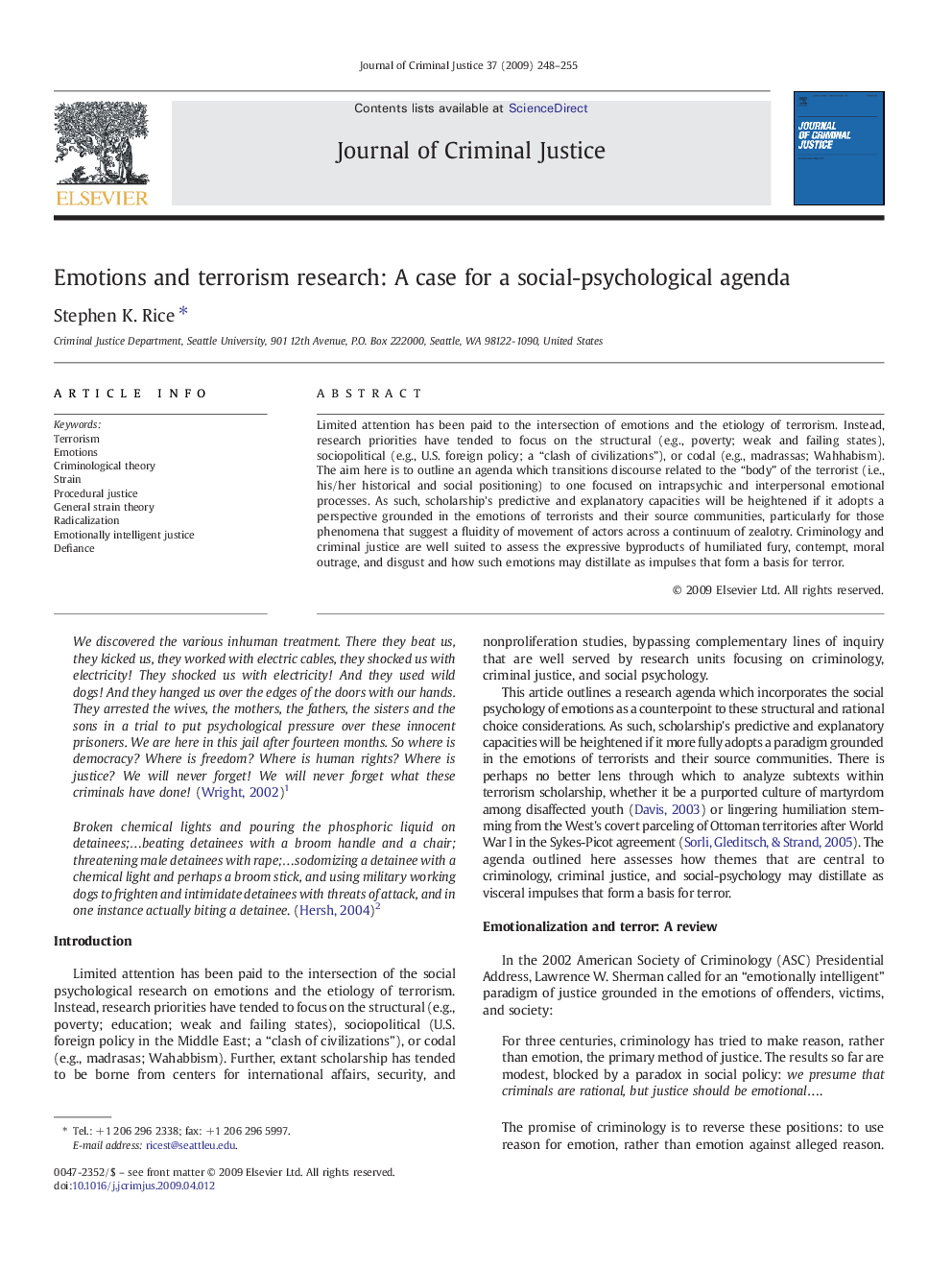| Article ID | Journal | Published Year | Pages | File Type |
|---|---|---|---|---|
| 883105 | Journal of Criminal Justice | 2009 | 8 Pages |
Limited attention has been paid to the intersection of emotions and the etiology of terrorism. Instead, research priorities have tended to focus on the structural (e.g., poverty; weak and failing states), sociopolitical (e.g., U.S. foreign policy; a “clash of civilizations”), or codal (e.g., madrassas; Wahhabism). The aim here is to outline an agenda which transitions discourse related to the “body” of the terrorist (i.e., his/her historical and social positioning) to one focused on intrapsychic and interpersonal emotional processes. As such, scholarship's predictive and explanatory capacities will be heightened if it adopts a perspective grounded in the emotions of terrorists and their source communities, particularly for those phenomena that suggest a fluidity of movement of actors across a continuum of zealotry. Criminology and criminal justice are well suited to assess the expressive byproducts of humiliated fury, contempt, moral outrage, and disgust and how such emotions may distillate as impulses that form a basis for terror.
